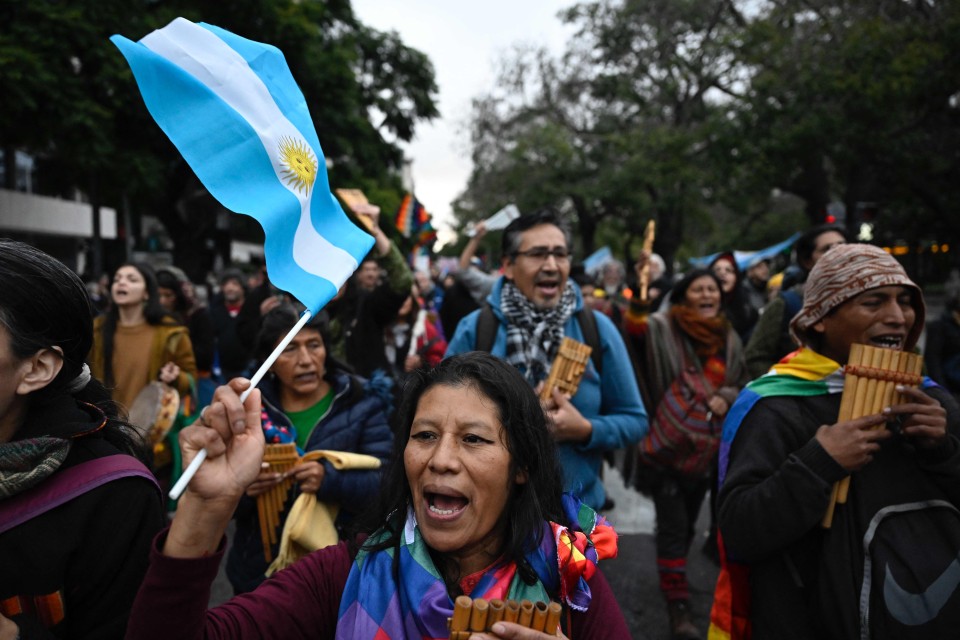
BUENOS AIRES, Argentina (AFP) — Dozens of people were injured in northern Argentina on Tuesday as protesters clashed with police in Jujuy province over a proposed ban on certain forms of demonstration.
For several hours, hundreds engaged the police in running battles in the streets of the provincial capital San Salvador de Jujuy, burning cars and throwing rocks, according to TV images.
Police responded with rubber bullets and tear gas.
One channel showed a demonstrator lying in the street near a pool of blood, and local media reported dozens of injuries on both sides.
An emergency services official told TN television that about “50 to 70 people received medical assistance” mainly for light injuries. At least one person was in a serious condition, the official said, after suffering a head injury.
An official in the provincial security ministry told AFP there had been at least 20 arrests.
Tuesday’s demonstration was called by groups representing Indigenous people and workers against a change to the provincial constitution that would prohibit protest-related road blockades and other “disturbance to the right to free movement of persons and the improper occupation of public buildings” in Jujuy.

The text had initially also sought to modify Indigenous land rights, but this was abandoned at the last minute after widespread protests.
A version of the text was approved by the provincial parliament on Tuesday, but the exact wording has not been revealed.
Jujuy province, which borders Bolivia and Chile in Argentina’s far northwest, is governed by conservative Gerardo Morales, a possible presidential candidate in the upcoming October elections.
On his Twitter account, Morales blamed the policies of center-left President Alberto Fernandez and his deputy Cristina Kirchner for the “extreme violence” in Jujuy.
Fernandez retorted the Jujuy reform was at odds with Argentina’s national constitution and urged the provincial government to stop its “repression.”
The Inter-American Commission on Human Rights in a statement expressed concern at recent actions in response to protests in Jujuy and urged “the State to respect the right to freedom of expression.”








